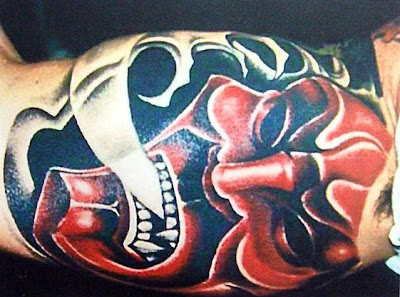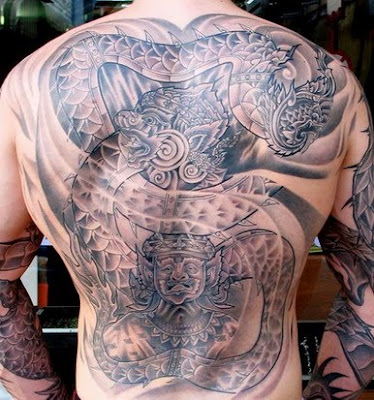Some moments in the universe of celluloid are so impacting that it seems impossible for history to have been otherwise. When it comes to Filmdom, the importance of casting, the magical coming together of director and script, and the synchronicity or serendipity of different events that lead to a masterpiece make it impossible in retrospect to see a finished project any other way. Still, it is interesting to sometimes question, "What would have happened if...?" What if a different director had gotten a hold of this? What if this guy were cast instead of that guy? Would it remain a classic??? Likewise, it is equally entertaining to wonder what would have happened if a failed project had only been entrusted to a different pair of hands, though this train of thought is ventured on less often-- a dead dud is often just left thus.
An interesting twist of fate in cinematic history involved not just one woman, but two: Star of the Month Louise Brooks and German film siren Marlene Dietrich. Their futures would be indelibly shaped around their involvement with the film Pandora's Box. This film, which would come to define Louise's career, almost went to Ms. Dietrich, and the role that skyrocketed Marlene to stardom--The Blue Angel-- very nearly went to Ms. Brooks. Had the original casting gone ahead as planned, the careers of both women may have been very different, and thus a large part of cinematic history would have been altered.
Marlene craved the role of Pandora's Lulu, but director G.W. Pabst was adamantly against it. Rumor has it that she was in his office, ready to sign a contract, at the very moment that the ever mercurial Louise cabled to accept the part. Marlene was fuming, as was the rest of Germany, when they learned that an American would be playing the legendary heroine from Benjamin Franklin Wedekind's smash play. The quest for Lulu in Berlin was equivalent to the later search for Scarlett O'Hara in Hollywood. It would be a long time before the world, Louise and Marlene included, discovered the brilliance of the casting and the beauty of the finished film.

Why did Pabst turn down Marlene, the toast of Deutschland, for the incomparable German role??? He thought she was too old (about 28 when production started, whereas Louise was 23) and too... Marlene. In her film work, Marlene was never just some girl, never the average woman. She was always a character within a character-- Dietrich in lambs clothing... Or rather man's clothing. Louise (above) was not a caricature of herself-- she was a woman comfortable in her own skin, daring without trying. She was unconsciously sexy and threatening in her lack of awareness . Marlene on the other hand, was a beautifully perfected contrivance-- hypnotic but inauthentic. She cared too much about her persona, therefore she could not have been the relaxed and effortless vixen Pabst needed for the role.
Ironically, after Pabst finished on Pandora, he was looking for his next project, which he hoped would be a film based upon the Heinrich Mann novel, Professor Unrat, starring his new leading lady Louise as the sultry Lola Lola. Instead, he lost the film rights to another director, Josef von Sternberg, who entitled the film The Blue Angel and cast his own favorite actress, Marlene Dietrich (below). In a very small world, the world of Movieland is even smaller. *(If you haven't seen this film, do. Because this was von Sternberg's first sound film, it is an important moment in the history of cinema. But, with sound being a new phenomenon, each scene was shot twice, once in German and once in English, so it could be sold to the American market. For the love of all that is decent and holy, see the German version and not the English- one is flawless, the other clumsy. Even von Sternberg's sumptuous decor and attention to detail in the mise en scene cannot save the mumbled stutters of actors trying to speak a language not their own)!

Though Marlene certainly enjoyed this new victory, which would be groundbreaking for her career, Louise was probably completely unaware that Angel was even a prospect for her. Again, it was all meant to be, for Louise would have made a poor Lola Lola. The same things that made Marlene a lackluster candidate for the liberated, yet ultimately doomed victim Lulu, made her the perfect, ruthless heart-breaker of Von Sternberg's film. Lulu wrapped men around her finger as an afterthought or at best as an entertaining means to an end. Lola Lola is a calculating maneater-- searching and destroying purely for sport. There is a violence and immediacy to her intelligent manipulation of the opposite sex. She possesses complete control and never plays the victim.

As a result of these two destined casting decisions, the women would be forever tied to their respective directors: Louise would become the muse of G.W. Pabst, and Marlene would be a disciple of Josef von Sternberg. The careers of both women would be shaped by these men, though the end products would be very different. Marlene wanted to be molded into an icon. She craved stardom and the power brought by her false persona, which she gladly adopted and melded with. Louise, conversely, did not understand celebrity and feared this same power, which she subsequently shunned out of skepticism. As a result, Marlene's star continued to rise while Louise's burned out. Both are considered legends today, but it would take time for Louise to regain that status. Had she not starred in Pandora, she may not have reclaimed her throne at all. Marlene never let her crown leave her head for a second.
In another twist of fate, the two unwitting nemeses finally crossed paths. Not long after filming on Pandora and Angel ended, Louise was at a charity event with David and Irene Selznick. She wandered around the mock casino, eventually finding herself in an empty room. Well, almost empty. There in all her pretty, blonde glory was Marlene, who-- to Louise's utter surprise-- offered a very friendly, "Hello." There was no confrontation or clash of egos. What the two women talked about during that time, will remain a secret known only to the two of them. Doubtless, the acknowledged bisexual, Marlene, tested the waters to see just how "open" the equally mysterious and androgynous Louise was. (It turns out Marlene was a little more freewheeling, and no physical relationship was consummated. If one had, certainly both unabashed women would have talked about it). 
In the end, they both seemed to have a mutual respect for each other. They actually had a lot in common-- save for the fact that Marlene was often cited as the hardest working woman in showbiz and Louise the laziest. Marlene admired the strong and intriguing young girl who had stolen the role of a lifetime and made it her own; Louise was fascinated by the ferocious energy and sexuality that Marlene was able to put into Lola-- though she would later write an article about Marlene and how the fresh young girl of Der Blaue Engel had disappeared after Marlene had become Hollywood-ized. Louise saw Marlene's career decisions as personal suicide, but in her own eyes, Marlene was a success. She had come to America as another Garbo-like import, only to create her own eternal identity. Her fame was a choice she embraced. Louise fled hers. Both were proud women: one proud of her work, and one proud of the work no one could make her do. For one brief moment, their artistic destinies intertwined. The rest, as they say, is history.















































.jpg)





